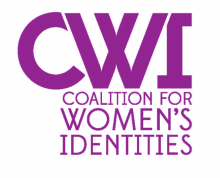Coalition for Women's Identities
Friday, 24 February 2017 - 5:03pm

Dear Colleagues,
In May 2016, President Obama issued a statement guiding educational institutions to interpret coverage of Title IX to include gender identity and expression, as opposed to solely sex. This update extended Title IX protections to trans and gender non-conforming students. On Wednesday, February 22, the Departments of Education and Justice rescinded guidance providing explicit Title IX coverage for trans students and colleagues issued by the Obama administration in May 2016. This action is problematic for three major reasons: (1) it reinforces the message to trans students and colleagues that they will not be protected by the Executive Branch, (2) it provides a pathway for institutions and individuals to actively discriminate against trans people, and (3) it potentially complicates court cases currently in process.
The ACPA Coalition for Women’s Identities (CWI) vehemently opposes these actions by the Departments of Education and Justice. For more than forty years, CWI has focused on the plethora of –isms and –phobias that affect the/a spectrum of women- and/or female-identified people, and is intentionally inclusive of all intersecting social identities, therein. The CWI serves to examine the subtle manifestations of power, privilege, and oppression, including but not limited to sexism, racism, genderism, transphobia, Islamophobia, classism, ableism, homophobia, and xenophobia within higher education, and to educate ACPA members about these issues and their effects within our profession.
These statements by the Departments of Education and Justice are in direct conflict with CWI’s values, mission, and vision, which we have no intention to change. We support earlier guidance given to schools and educational institutions that advocated for the full inclusion, participation, and protection of trans students and colleagues. We encourage our members to support trans people across a wide variety of issues, including but certainly not limited to providing access to all-gender restrooms. Below we address two constituent groups: our trans colleagues and students and our cisgender members and colleagues.
To Trans Colleagues and Students:
CWI values you.
CWI supports you.
CWI rejects this statement.
CWI rejects the gender binary reinforced in higher education and society.
CWI rejects the idea that trans is monolithic.
CWI WILL NOT BE SILENT.
Our societal devaluation of trans and gender non-conforming individuals can have pervasive impacts on the mental health of trans and gender non-conforming people. The implications of the current administration’s reduction in protection may exacerbate or bring rise to the presence
of mental health issues and concerns. To find trans friendly mental health professionals in or near your area visit the WPATH website.
To Cisgender CWI Members and Colleagues:
The following are some important resources, talking points, and things to consider as we join together in making this critical statement. Thank you for being a part of this important action.
- BLACK TRANS LIVES MATTER.
- The lives of trans folx of color matter.
- Name what’s happening for what it is: transphobia, cissexism, binarism and exclusionary. This statement goes beyond bathrooms and pronouns.
- Reflect on your cisgender privilege. Become aware of your privilege and how you defensively react to your cisgender privilege. We recommend Dr. Sherry Watt’s (2007) Privileged Identity Exploration Model as a starting place.
- Center trans people of color in your work. This means focusing on trickle-up activism, a concept introduced by Dean Spade and articulated in relation to education by Z Nicolazzo, and the long history of trans activism held down and lifted up by scholars, educators, and activists like Reina Gossett, DL Stewart, Lourdes Ashley Hunter, Kim Coco Iwamoto, and many others.
- Reach out to your trans colleagues, co-workers, and students.
- Know your how your state and institutional laws, policies, and interpretations affect trans and gender non-conforming students and colleagues.
- Work to actively change your college campus. Does your institution have all gender restrooms? Are pronouns on course rosters or admissions applications? Does your institution allow for students to register under their name rather than their “legal” name? Do your websites, policies, and forms reinforce the gender binary? These are just a few examples of important ways to create trans-inclusive campus environments. It is ALL of our responsibility to make these changes, including and especially cisgender folx.
- Engage with your local communities to resist transphobic laws and policies.
- If your institution is facing major policy changes regarding restrooms, provide safe ways for trans folx to access restrooms.
- If you teach courses, include trans authors and media on your syllabi.
- Consider donating to send copies of Z Nicolazzo’s Trans* in College to the Texas legislature in advance of ACPA 2018 in Houston.
- If you are attending ACPA 2017 in Columbus, plan to attend the sessions focusing on trans inclusivity.
CWI is sponsoring a pre-convention workshop titled, “Creating Institutional Change: Centering Trans Identities within Policy and Practice.” The workshop will be held on Saturday, March 25 from 1:00 - 4:30 p.m. at the ACPA 2017 Convention. This half-day workshop will serve as a catalyst for participants to critically investigate and brainstorm ways that they can create institutional change on their campuses by centering trans identities within their institution’s policies and practices. This is a great opportunity for you to engage in dialogue, discussion, and thought around tangible ways to create trans-inclusive environments on your campus. Register here now.
Other organizational responses to the Departments of Education & Justice Dear Colleague Letter (February 2017):
ACPA:
Consortium of Higher Education LGBT Resource Professionals:
End Rape on Campus:
http://endrapeoncampus.org/eroc-blog/2017/2/22/eroc-official-statement-on-transgender-guidance
National Center for Transgender Equality:
NASPA:
Resources for educators and others:
How Colleges Can Still Legally Protect Trans Students (Genny Beemyn & D. A. Dirks):
ACPA’s Developmental Pathways to Trans Inclusion on College Campuses:
http://www.myacpa.org/publications/developmental-pathways-trans-inclusion-college-campuses
FAQ on Withdrawal of Federal Guidance on Transgender Students:
“Why Trans* Students Matter” (interview with Z Nicolazzo in The Chronicle of Higher Education): http://www.chronicle.com/article/Why-Trans-Students-Matter/239305?key=sp0x03E8c0EpmAD1jKoY1UhhGFlRpj4186q1NYAilxSCI8jwJ_X1YF-ekORGeUoPZy15TDBDT0NMQTFpTUZuQm0wYWZpdmFJZmY1VFJDTzQ2OUVsMUc2NGctbw
Trans Student Educational Resources:
